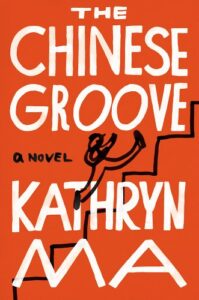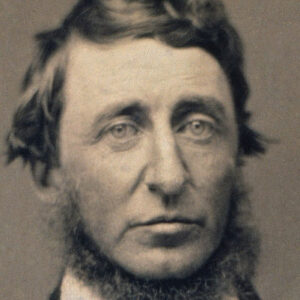Kathryn Ma on Growing Up a Librarian’s Daughter
“Say the word ‘library,’ say the word ‘books,’ and I feel my mother close.”
In Southern California, in the seventies, a good summer job involved the beach or the mall. This got you money, a fabulous tan, and friends who showed up to hang out. I would’ve taken one of those jobs. I was a good swimmer. I could scoop a mean cone. I had serious retail experience folding madras cotton and rearranging the button rack at the House of Fabrics.
But my mother had other plans for me. She got me a job as an assistant in a research and development company. The company had its own library and a science librarian who needed clerical help. My boss was the librarian, and the librarian was my mother.
I didn’t have much say in the matter. College was on the horizon, and I had no idea of what I wanted to do with my life. I liked to talk and read, which were hardly defining talents. My dad was an engineer, but engineering seemed an unlikely fit, since calculus was about to leave me stranded, a watertight vessel headed out to sea that I watched, landlubbered, from the dock. So I climbed into the station wagon every morning to go with my mother to work.
The company’s library was a popular place. A constant stream of engineers brought their questions to my mother. They were all men in pressed white shirts and horn-rimmed glasses carrying charts and graphs, or a bundle of pages covered in formulae.
“Margaret,” they’d say, their eyes anxious and their voices hopeful, “can you look something up for me?”
My mother would jump to her feet, ask a couple of questions, and either find the answer right away or research where to find it. Sometimes the information was in a reference book she plucked right off the shelf. Sometimes she arranged for an interlibrary loan from a private or public collection.
Other times, she had to decide whether to spend the money to buy a thick volume, or subscribe to an information service that would supply the engineer with the data he needed. Mom was quick, she was accurate, and she was smart. She was better than the internet, because nobody went down a rabbit hole to re-emerge, hours later, no further enlightened.
What I felt in my mother’s presence was library.I, on the other hand, had a really difficult job. I was to type up the little cards that slid into the card catalog. I was to assemble, label, re-shelve and file. I went to lunch with the secretaries; Mom never joined. She seemed to know I wouldn’t want her there.
Her path to becoming a librarian was improbable and long. She was born in Changsha, China and educated at a seminal women’s college founded in Nanjing. In 1947, she came to the U.S. for graduate study at Ohio State University, where she earned a Master’s Degree in food chemistry and met my father, a fellow Chinese student. They married in a church in Columbus, Ohio, and my mother, who had flown glider planes, run track and field, and escaped an invading army, settled into motherhood.
I was the third child; my younger brother was the fourth. A few years after he was born, my mother went to work outside the home, upending our tidy lives. Several times a week she commuted across the Delaware River from our home in Pennsylvania to her part-time job as a cataloguer in the East Asian Library at Princeton University. Maybe she got the idea from her sister, who worked in a college library too. She could’ve worked in a lab, given her science training, but she chose the library.
When we eventually moved to California and settled on the far reaches of L.A. County, my mother returned to school. It wasn’t easy for her to raise four children and earn her Master of Library Science degree, but she did, combining it with her chemistry background to start her new career. From my chair across the desk, I saw that she loved her work.
What did I learn that summer? That it was a wonderful thing to earn a paycheck. That a good boss who sets expectations, gives you privacy and freedom, and who’s excellent at her own job is somebody you want to impress. And that my mother, who was so phenomenal at home, was well-liked and respected by her colleagues. She had a job, an important one, that had nothing to do with the family. That alone was an illuminating fact.
But the deepest lesson came not from fact but feeling. What I felt in my mother’s presence was library. Was a reverence for knowledge, and her belief in the truth that can be found in books. From my earliest years, my mother brought me to the public library. When I was old enough to ride my bike there, she let me go by myself. And then that summer, she invited me into her sanctum, where she knew how to call up the knowledge of the ages so that she could share it with those who asked.
My mother is now gone. She will never read my latest book, a novel about love and loss and family. One of the major characters is a children’s librarian, not at all like my mother, except for her core strength. Her father-in-law’s house is piled high with books. “Scores more books, bricked with knowledge, bulged from crowded shelves.” Was I thinking of my mother when I wrote those words?
Perhaps, though I wasn’t conscious of it. Say the word “library,” say the word “books,” and I feel my mother close. After her death, my sister urged me to take the kitchenware, the dining room hutch, the cut glass bowl my mother used to serve punch. I surveyed the apartment, and took home her library card.
__________________________________

The Chinese Groove by Kathryn Ma is available from Counterpoint Press.




















